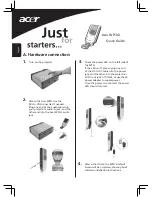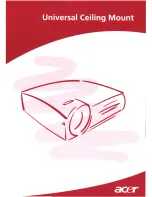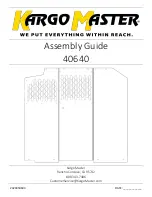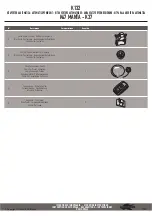
73
72
I N T R O D U C T I O N T O AVA L A N C H E T H E O RY
10.3.2 Minimize Stress on the Snowpack
Adequate spacing is an effective method to mini-
mize stress on the snowpack. Ascending, the spac-
ing should be approximately 10 meters; descending
approximately 30 – 50 meters, due to the additional
stress. Danger zones should be traveled one person
at a time. Minimize the stress on the snowpack by
making long turns. Avoid jumping!
10.3.3 Renunciation in the Terrain
(Basic Reduction Method, W. Munter)
Danger Level Skiable/ridable slope angle
2-Moderate less than 40 degrees
3-Considerable less than 35 degrees
4-High less than 30 degrees
• Untracked steep slopes (> 30 degrees):
➜
spacing of at least 10 m.
• Outside of the forecasted aspect or altitude
ranges:
➜
the danger level is generally one level lower.
• At the edge of the forecasted aspect or altitude
ranges:
➜
Do not approach the limits
10.4 Avalanche Forecast Centers
It is impossible to publish a list of all the avalanche
forecast centers in this user manual.
Current information about all avalanche forecast
centers can be found ie. At www.avalanche.org
(worldwide) and www.avalanches.org (Europe).
Example:
black
= Considerable
→
wh
i
t
e
≈
M
odera
t
e
0
0
8
1
m
N
3
10.5 International Avalanche Danger Scale
Generally favorable conditions.
Generally favorable conditions.
Careful choice of route on steep
slopes of aspect and altitude as
given in the avalanche forecast.
Partly unfavorable conditions.
Experience in assessing avalanche
risk required. Wherever possible
avoid steep slopes of aspect and
altitudeas given in the avalanche
forecast.
Unfavorable conditions.
Tours only in moderately steep ter-
rain < 30 º. Be aware of avalanche
runout zones.
Very unfavorable conditions.
Refrain from tours.
쐃
LOW
쐇
MODERATE
쐋
CONSIDER-
ABLE
쐏
HIGH
쐄
EXTREME
Snowpack generally
well bonded.
On some steep slopes
snowpack only mod-
erately bonded.
On many steep
slopes medium to
poor snowpack.
bonding only.
Poor bonding of
snowpack on most
steep slopes.
Generally poor bond-
ing of snowpack,
mostly unstable.
None.
Difficult to recognize.
No alarm signals.
«Whumphing» noises.
Some spontaneous ava-
lanches. Remote triggering
at the foot of slopes.
Spontaneous avalanches.
Remote triggering.
Spontaneous avalanches
avalanches and remote
triggering on a large scale.
Danger Level Snowpack Typical Indications Tours


































